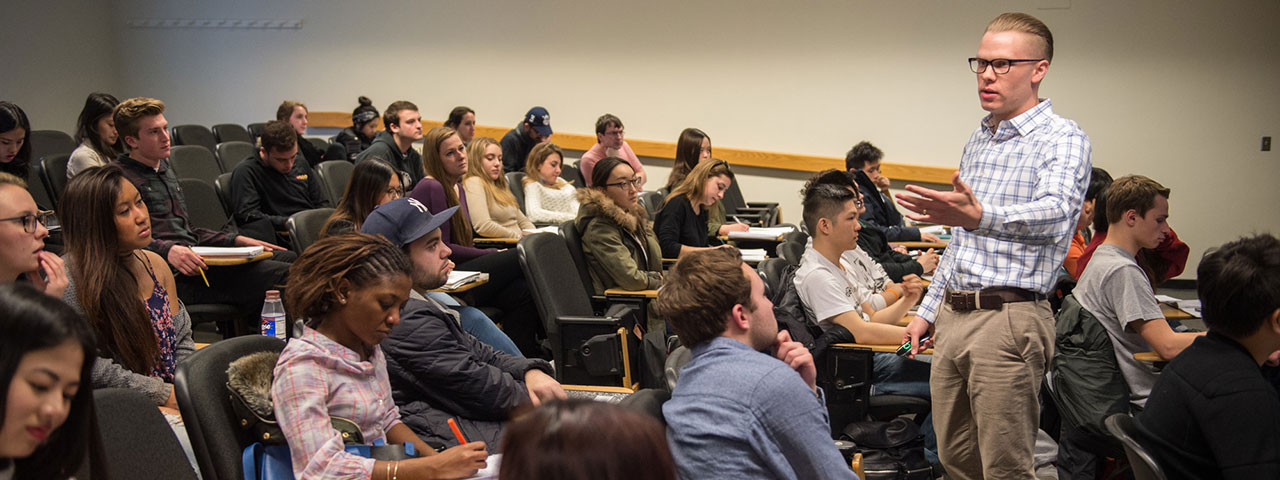Shape the Future of Politics and Governance
Political Science Undergraduate Major and Minor

students make political science one of the largest programs in Maxwell
take classes and study in Albany; Washington, D.C.; or internationally
undergraduate political science concentrations to choose from
B.A. in Political Science (30 credits)
Minor in Political Science (18 credits)
Core Requirements
Majors must complete two required courses (listed below), an additional lower-division course (100 or 200 level), six upper-division courses and an additional course at any level.
American National Government and Politics
Introduction to Political Analysis
Political Science Concentrations
Political science majors will be exposed to political inquiry across a broad array of substantive topics, while also concentrating in one of the areas listed below. Students must take three courses in one of these concentrations.
American Politics
Comparative Politics
International Politics
Law and Courts
Political Economy
Political Theory
Public Policy
Race, Gender, Class
Security Studies

I am Maxwell.
I always had a passion for politics and government. I kept it more of as a hobby until finally one day I said ‘No, this is what I want to do, and Maxwell will provide me with skills I need to succeed.’”
Katherine Hannon ’20 B.A. (PSc)
Village clerk for Plandome Manor, New York